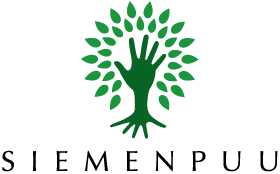[Uddhab Pyakurel and Marko Ulvila] Nepal Social Forum Secretariat organized a Social Forum Consultation on December 8, 2018 in Kathmandu. The meeting was organized to review developments in like-minded social movements in Nepal to strengthen democratic space as well as to discuss the reactivation of the WSF process at the South Asian and Asian regional level.
The meeting was attended by 60 persons of different background. From abroad there were two members of the International Council of the WSF, Marko Ulvila from Finland and Vijay Pratap from India, both active in the Vasudhaiva Kutumbakam Network. Uddhab Pyakurel opened the consultation by thanking all who had contributed to the Nepal Social Forum in March and outlining the programme of the meeting.
Vijay Pratap talked about how governments and people of global south tried to follow western way of life without realizing the ecological limitations. He told how indigenous people, indigenous knowledge and village life gets destroyed in the name of ‘growth’, and ‘development’. He recalled the history of Indian Independent movement and stated that Indian leadership at that time had acted very wisely as far as inclusion was concerned. That is why the movement got a great success and India could be declared as a secular country. But the incumbent governments in South Asia, especially in India are trying to destroy the secular and inclusive nature of the society. Historical ill practices prevalent in the past have now been acknowledged by the Indian government as good practices, and the exemplary works i.e. secularism has been ignored or neglected.
According to Vijay Pratap, the problem we face at regional level in South Asia and global level too, is that political parties or NGOs alone are not adequate to respond to the adverse trends. Rather, the whole society need to stand to respond it in holistic manner. For the purpose, the WSF is the only forum which brings different walks of live together. Groups who follow different ideologies and different ways of thinking can assemble together within an open forum without compromising their identities and ideologies. There is no need to even agree for a joint declaration. That is how different groups of people can sit together and assert themselves in a common space. There are various declarations based on one’s belief but not necessarily all should agree to a single declaration. It is the pluralistic way of having comprehensive discussion about how to address social ill practices within the society.
Marko Ulvila from Finland provided a global perspective about the Social Forum movement. In his brief presentation Marko Ulvila congratulated the Nepalese civil society for successfully organizing the Nepal Social Forum in March and thus contributing the global WSF process. Further he highlighted how the Nepalese civil society has proven its unique strength in the transformation of the country in a decade from an authoritarian kingdom having a civil war to a peaceful republic with one of the most progressive constitutions in Asia. The progressive nature of Nepali civil society and Nepal’s friendly relations with all South Asian countries and China puts it into perfect position to promote and facilitate Social Forum process on international level. He shared how also European society has been being shifting to the right and how the open space is being shrinking globally by pushing progressive forces in margin. Globally extreme right with fascists inclinations or slogans are winning seats in elections. This is another reason for progressives to come together in forums like the WSF to change the trend.
In the discussion a common message regarding Nepali politics was need for greater equality. Participants from various movements of marginalized majorities and minorities spoke of the great expectations people have from the new constitution and government to correct historical injustices, be they based on caste, ethnicity, gender, class or disability. Since not much progress is taking place, there is need for greater movement activity and interventions. Many Nepali participants of the discussion stated that WSF process is very important process to be strengthened in South Asia and Asia. Some of the participants were of the view that the openness and accommodative nature of WSF that allow oppressed voices to be heard are best features of the Social Forum. Only this model will work in much divided societies like Nepal and elsewhere in South Asia. Participants raised the issue of inclusion of women, elderly people, and groups of differently-able saying that the government was dishonest in slow implementation of constitutional remedies provisioned to take the marginalized section of the society on board. They demanded for an open forum where they can discuss those issues at length.
The conclusion of the consultation was to discuss more within the progressive forces in Nepal and at Asia level so that there will be a thematic Asia or South Asia Forum in 2020. This is in line with the discussions during the Nepal Social Forum in March this year. So far there is no particular theme identified, but equality is certainly one goal that is shared widely among the movement groups.
Uddhab Pyakurel and Marko Ulvila, 17.1.2019
Uddhab Pyakurel is Assistant Professor at the Kathmandu University and senior resource person of South Asian Dialogues on Ecological Democracy. Marko Ulvila is the Chairperson of Siemenpuu Foundation.
